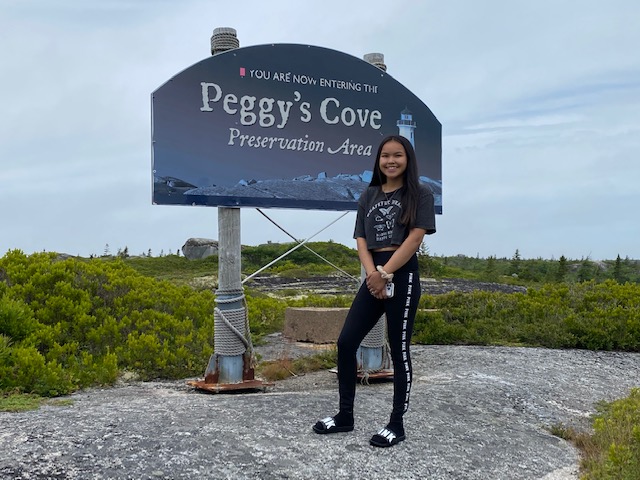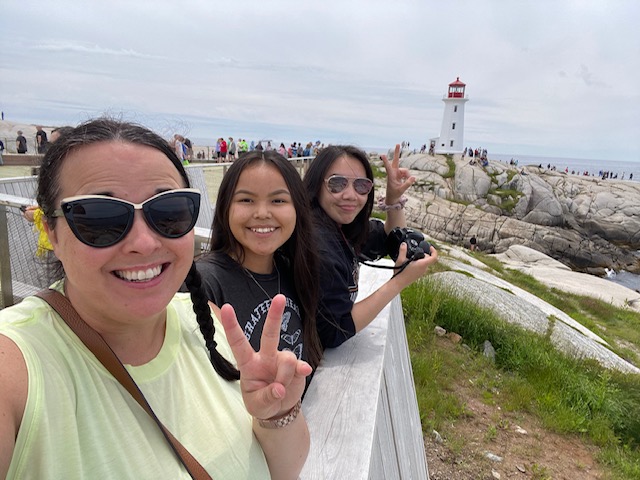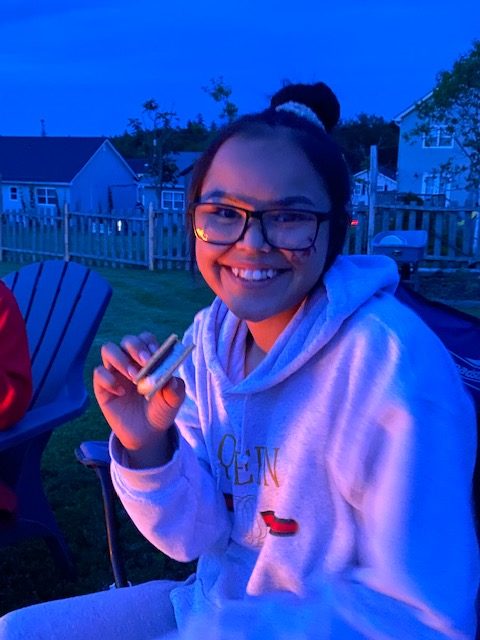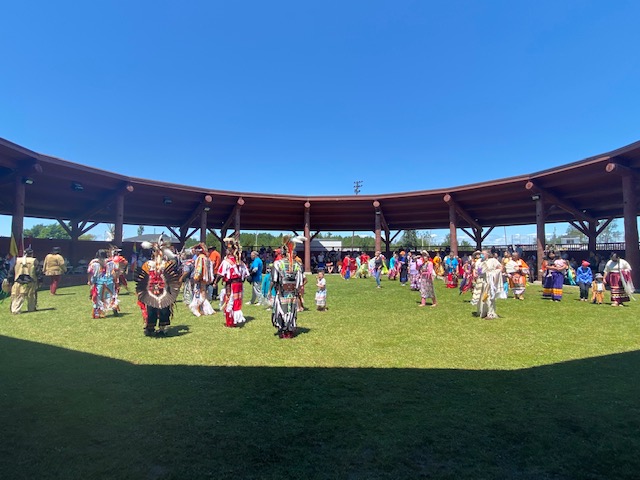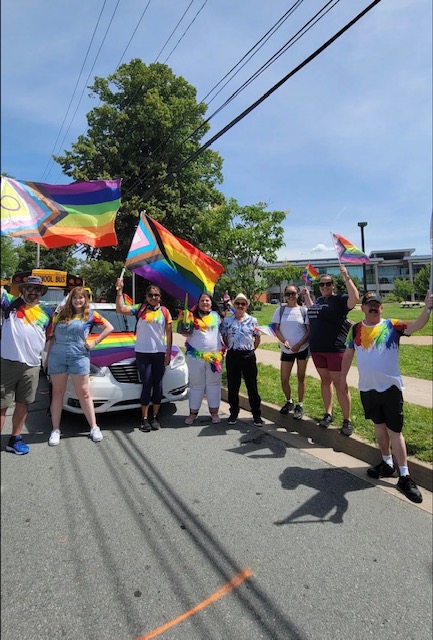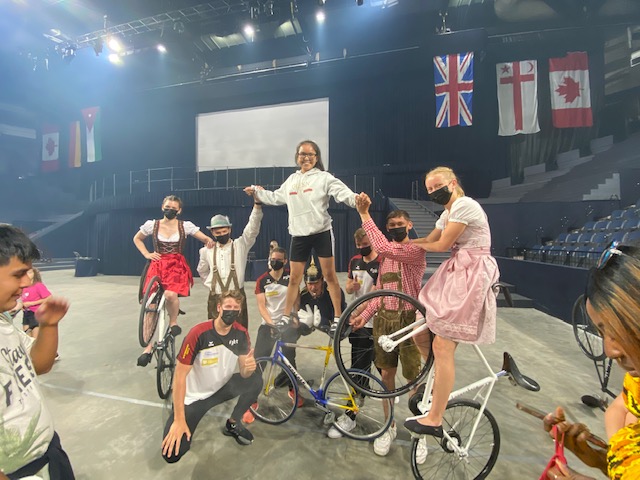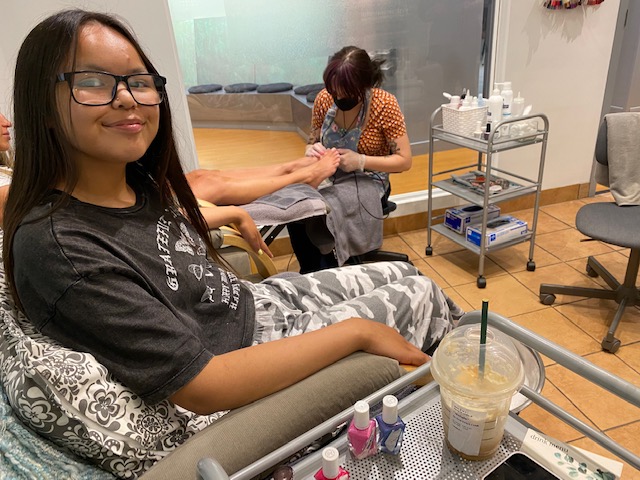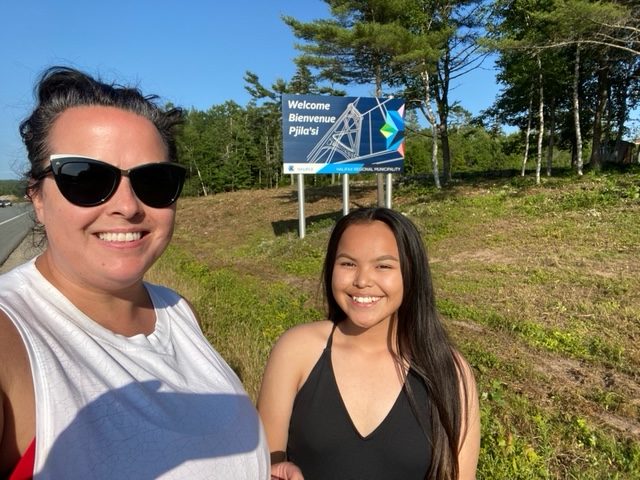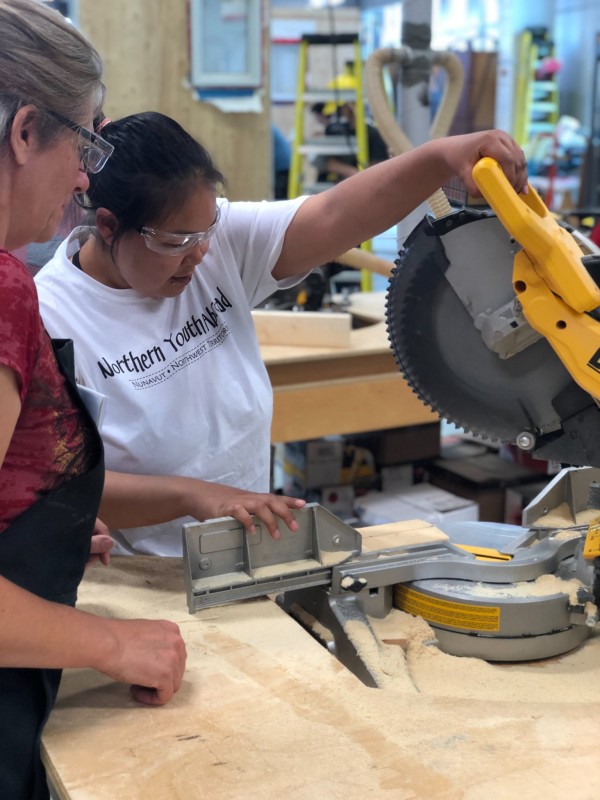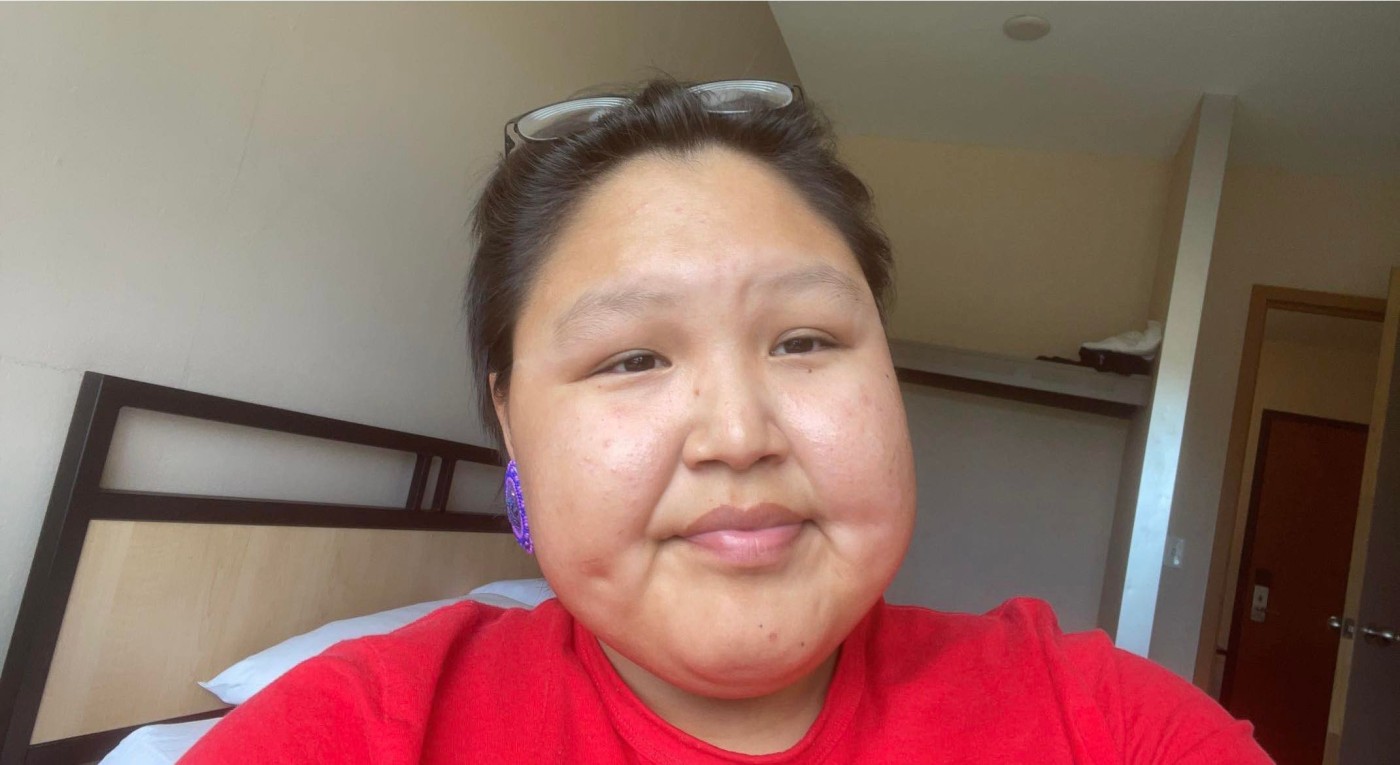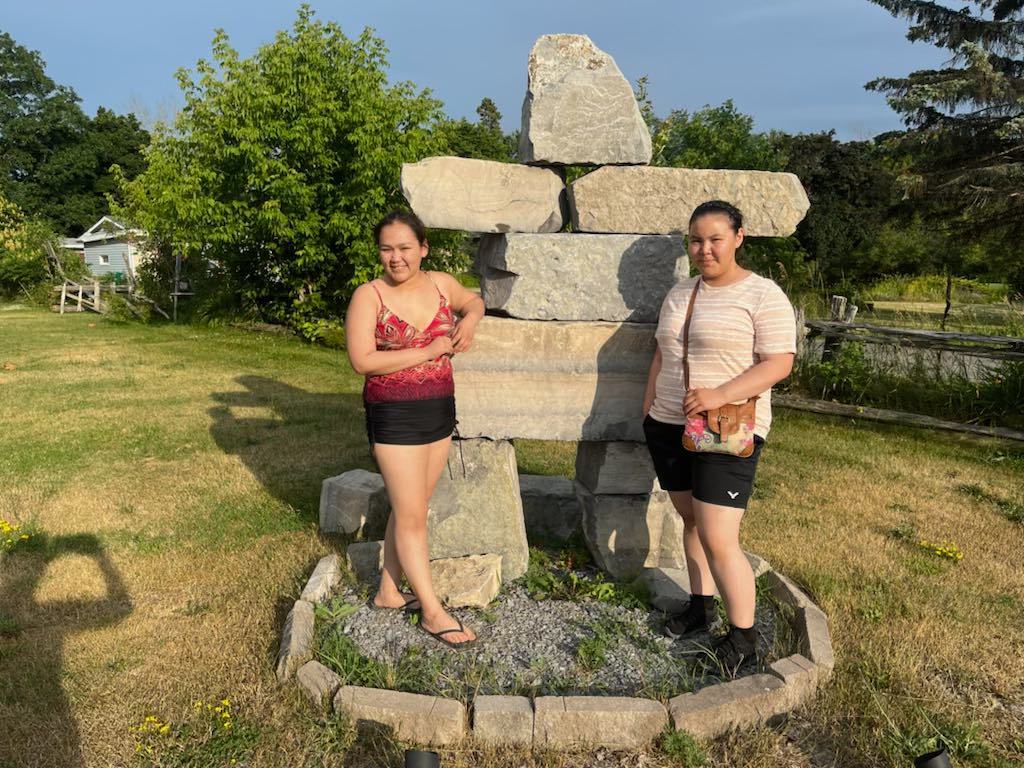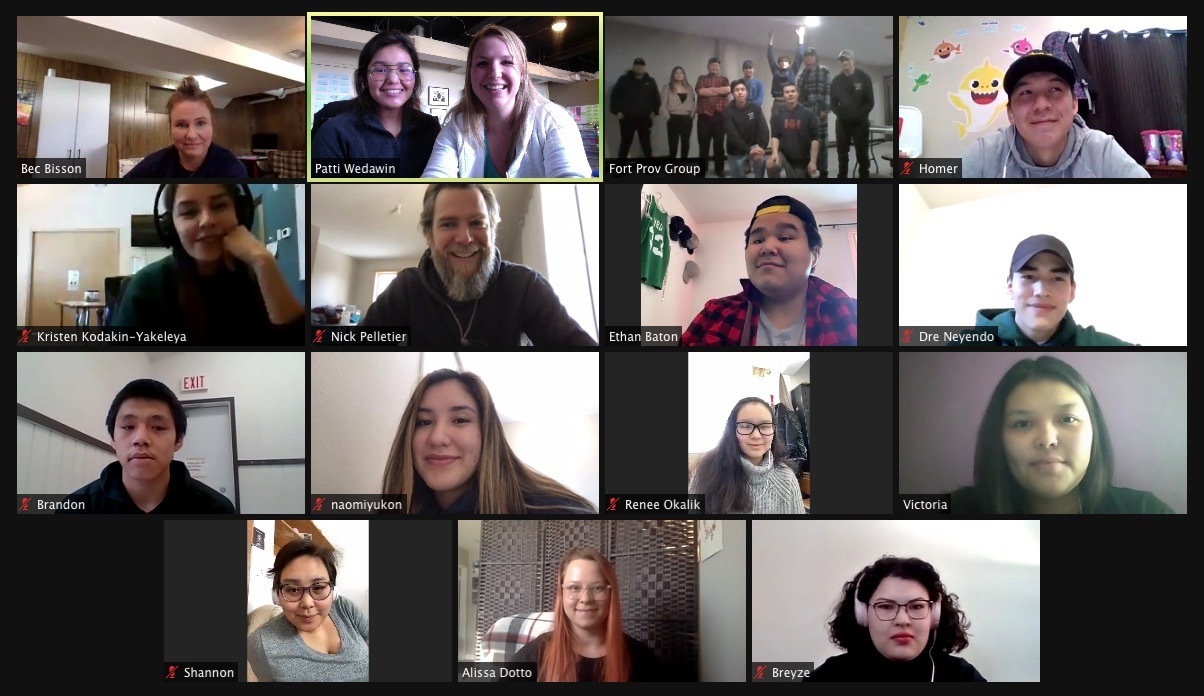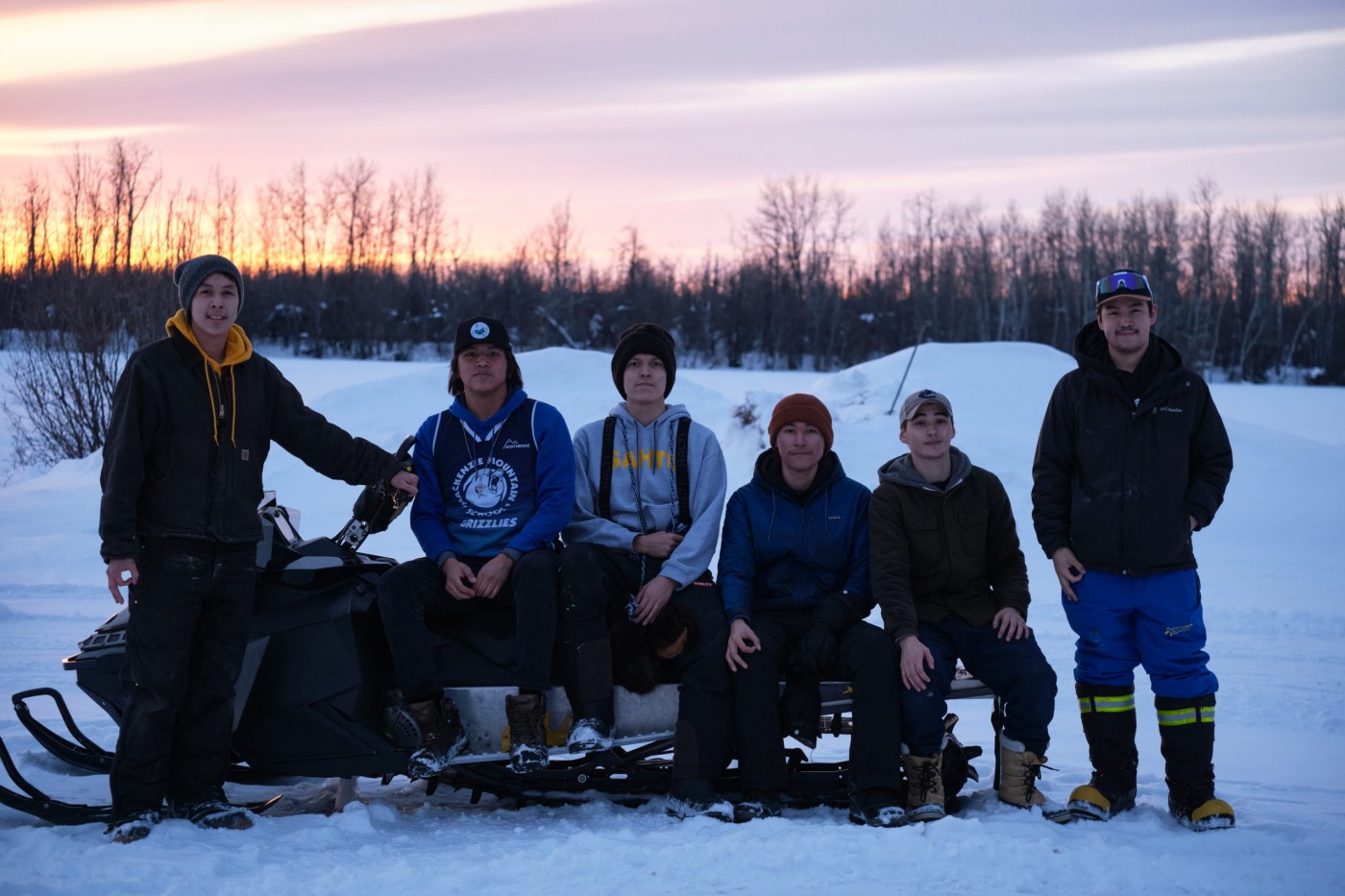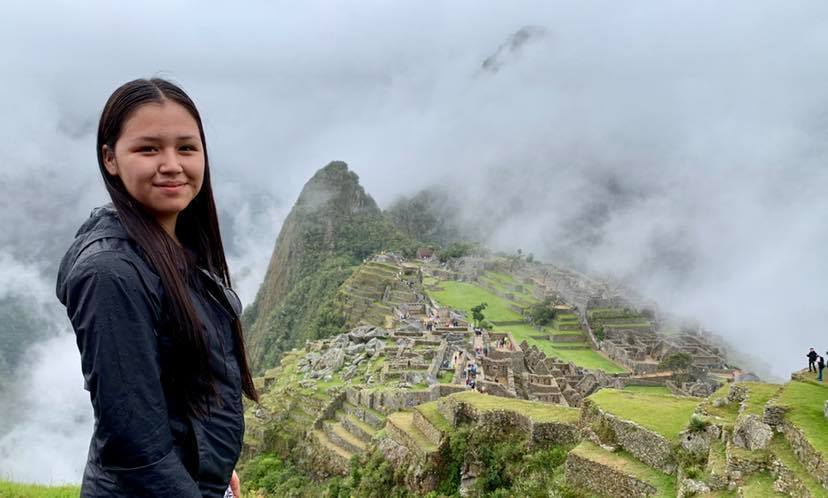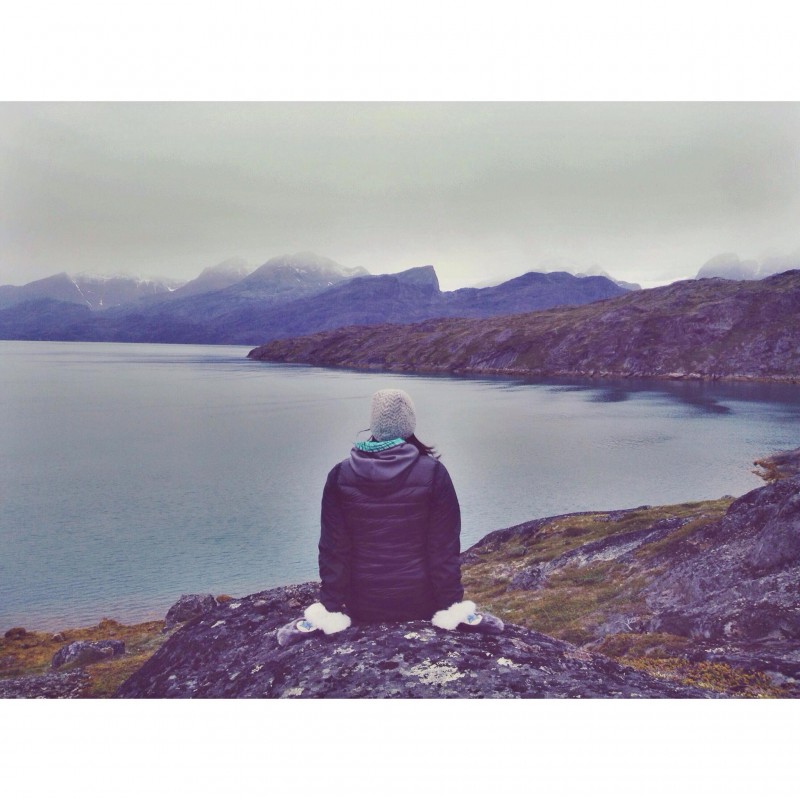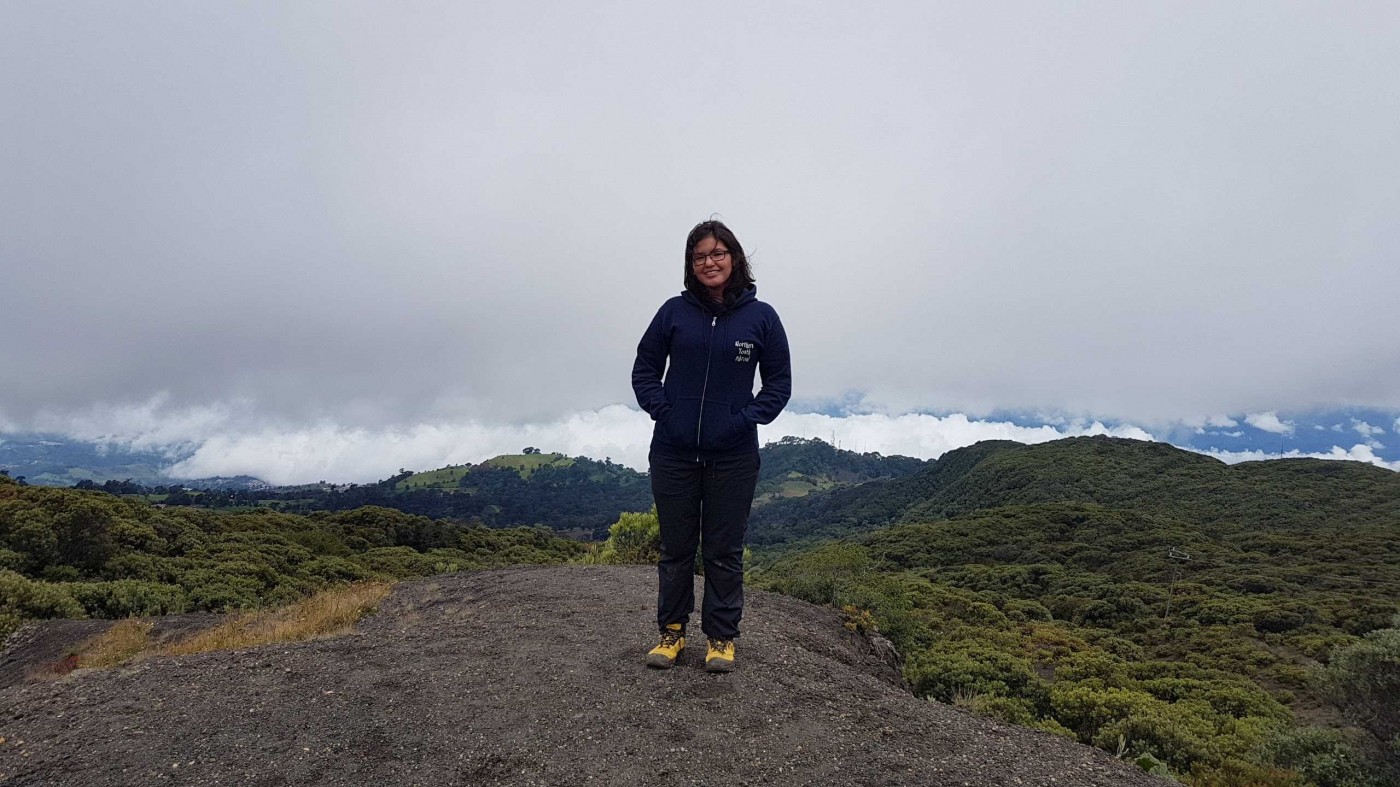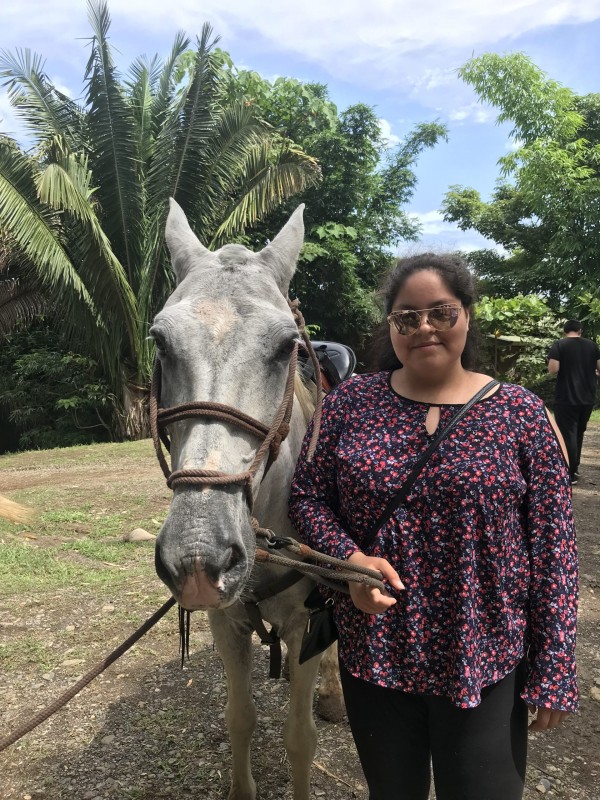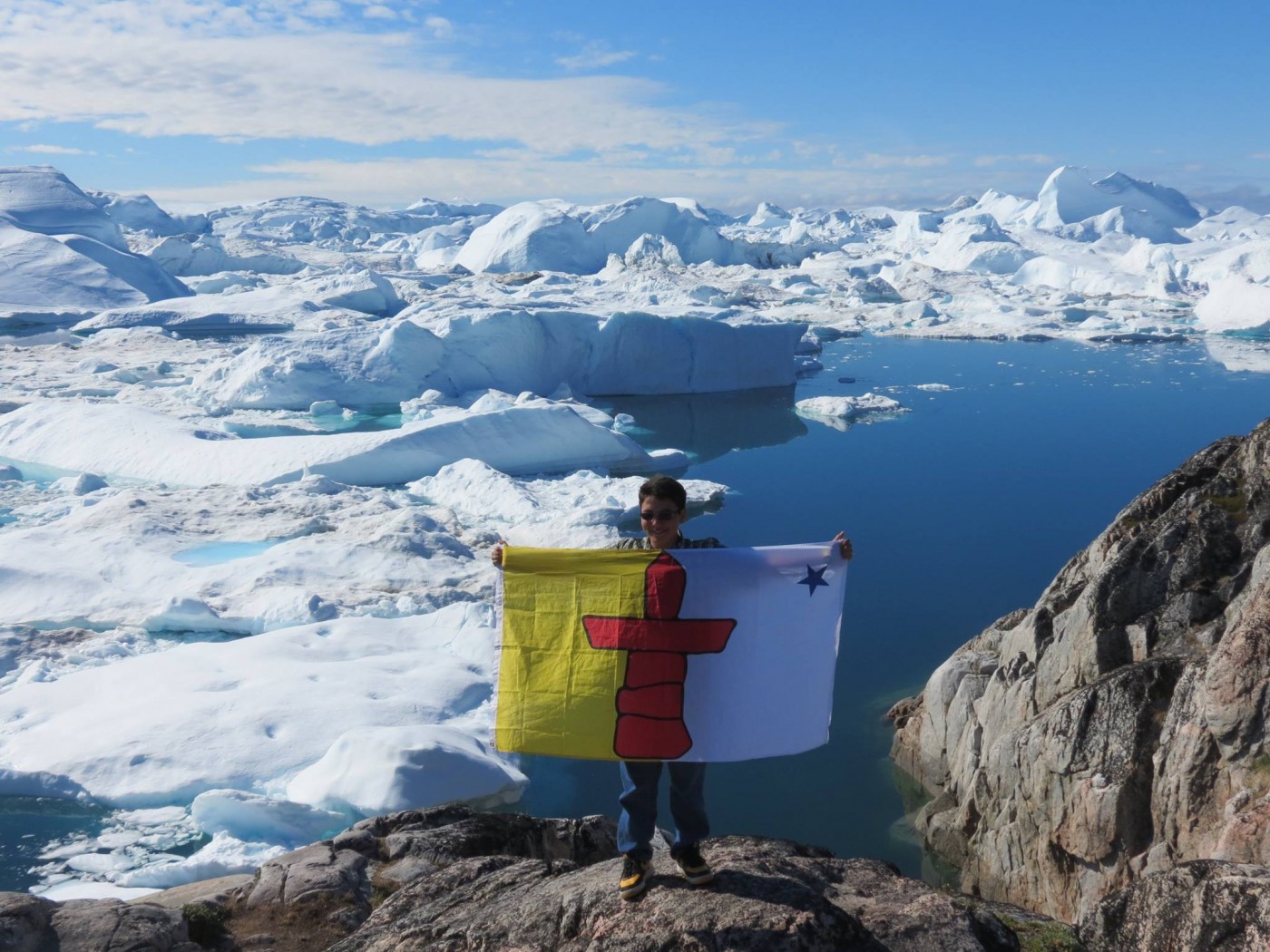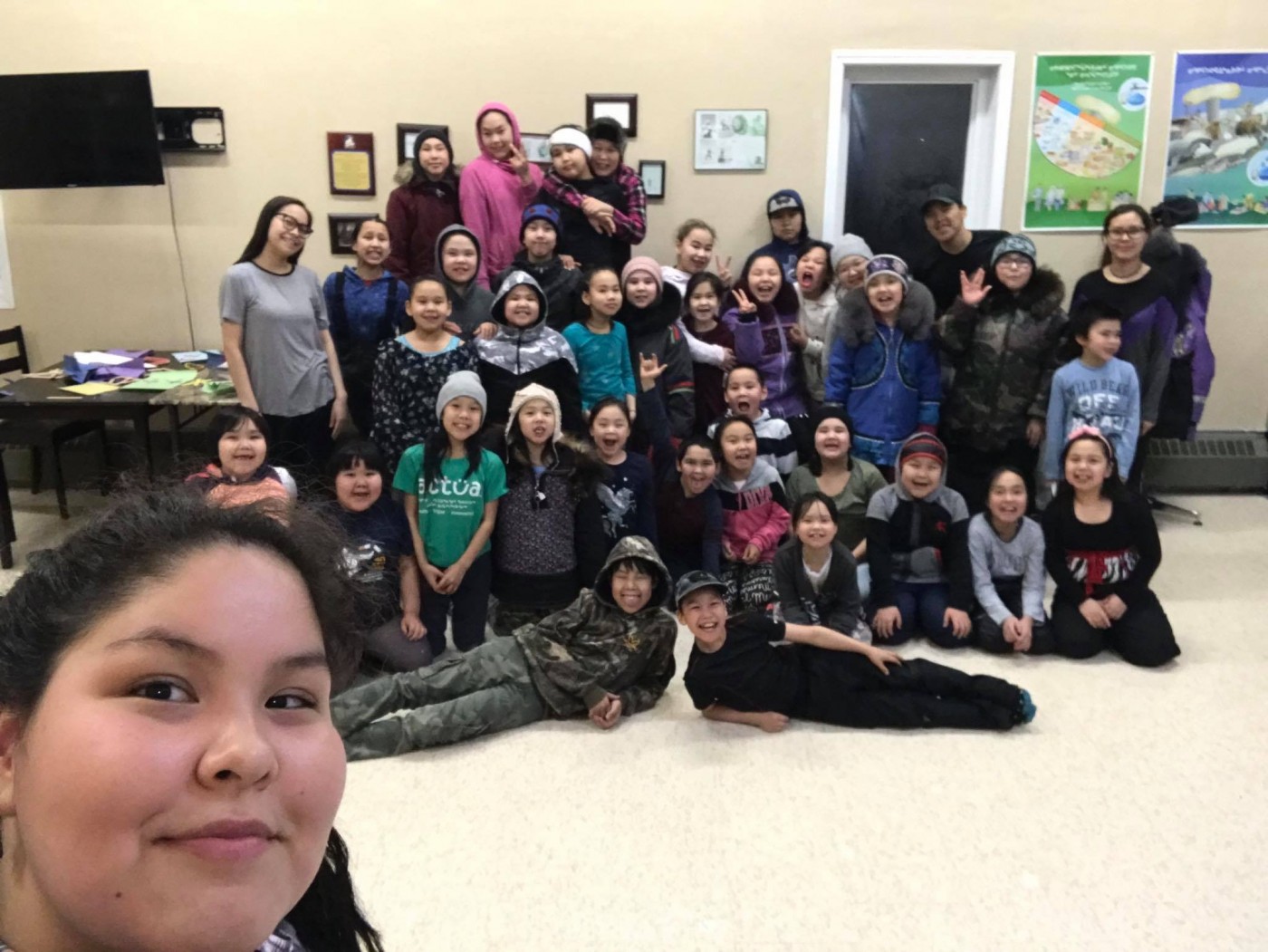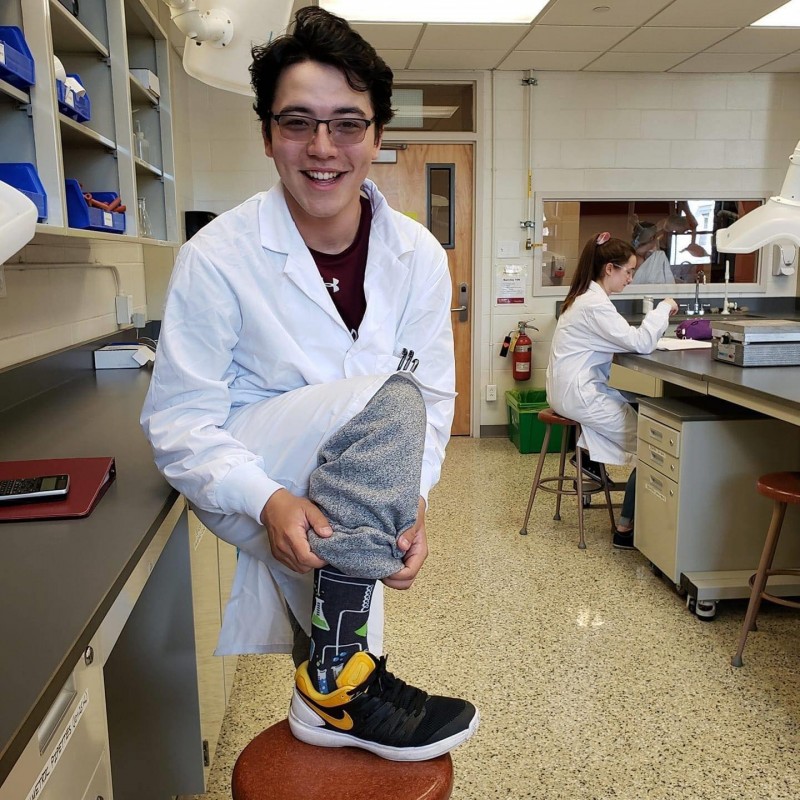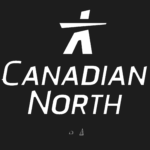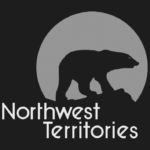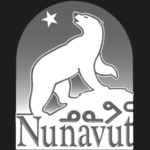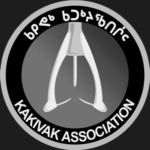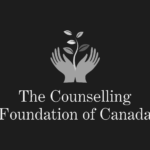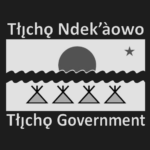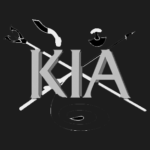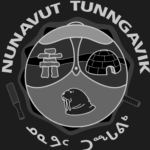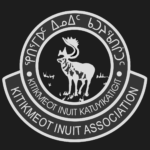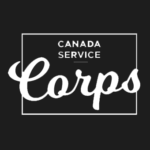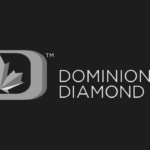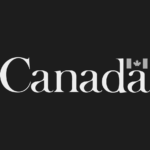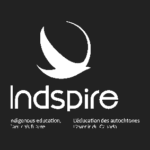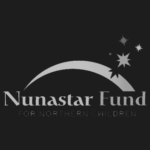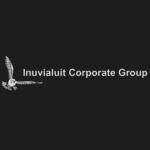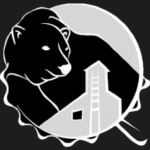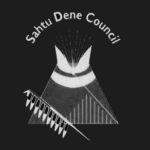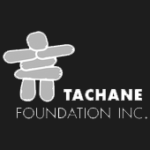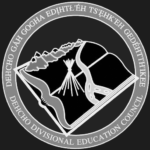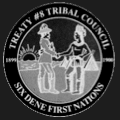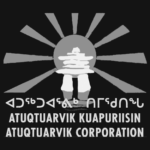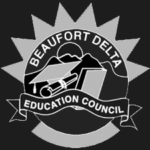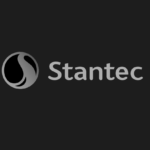Last month two of our NYA Ambassadors had the chance to participate in a virtual Dene Education Summit. Here’s a recap of the summit and what they learned.
Written by Patti Wedawin and Topsy Banksland
Day 1: Monday, July 27, 2020
The Dene Nation Education Summit was not what we expected. It was so much more. All of these amazing leaders, influencers, educators have met for 3 days, 3 hours each through Zoom and we had the privilege to be there and listen. In total there was four main speakers and we’d break into smaller groups during the last hour of each session. Each smaller group had another main speaker that had a specific topic to discuss with us. We shared stories, opinions, and bounced ideas back and forth.
We started every event with introductions from the main speakers and a ceremony; feeding the fire followed by a prayer by Doris Camsell. Joanne introduced one of the main speakers of the day, the Dene National Chief, Chief Norman Yakelaya.
Chief Yakelaya wants our nation as a whole to find out who we are as Dene in education. Education is the way to go, he says, either in a classroom, on the land, or listening to stories from our grandparents. It’s important to follow through with these types of education while still following our spiritual way of life. Chief Yakelaya wants to create a vision for Dene education. He goes on to explain how COVID has affected some people in good ways and some in bad ways; some got the chance to explore life on the land as our ancestors did, some thought they had nothing to do and just use their time in front of a screen. The moral we took from that was that some people took a step back, opened their eyes, and saw an opportunity rather than a stop on life. 20-30 years ago, Chief Yakelaya read a research paper that was about some indigenous communities and students were thriving in education, culture, and just in general while others were not. He took a three-day course in Arizona that was related to this research paper and was determined to meet the author ever since he came across it, and he had the pleasure to do so just last year.
Chief Norman Yakelaya then introduced Dr. Stephen Cornell, who joined us from the traditional lands of Apsaalooke Nation (the Crow Tribe) in south-central Montana in the United States.
Dr. Cornell is an educator and researcher with a PhD and he goes on to talk about the indigenous education that we are still fighting for in Canada. What Dr. Cornell had to offer is a professional career spent working closely with Indigenous nations and organizations in North America and beyond on self-determination, governance, development, and related issues. Dr. Cornell and his colleagues have been extraordinarily fortunate in being able to learn from a diverse group of Native nations over the years, nations that are in the process, as we are, of reclaiming their right to govern themselves and their lands in ways of their own choosing. He wants to share some of what he’s learned in the course of those collaborations.
Dr. Cornell focuses on two revolutions in the Indigenous world that have been ongoing over the last few decades. They have been emerging and evolving since at least the 1970s, sometimes making progress, sometimes not. The first is a revolution in the field that this summit is about: an education revolution. It’s the reclaiming, by Indigenous peoples, of a prominent place in education for Indigenous knowledge, experience, ideas, culture, history, and aspirations, and the realization of that claim in altered curricula, more Native teachers, Native controlled schools, greater community engagement in education, vastly expanded language learning, and much more.
Dr. Cornell calls the second one the political revolution. For a long time, Indigenous politics was focused primarily on fighting for recognition and asserting rights: to land, to self-government, to welfare, to the maintenance of traditional cultural practices, and so on. That type of politics, in many ways, centers central governments. Essentially, it is a politics about them, those decision-makers in Ottawa and Washington or in the provinces, territories, and states. It’s about what they do an effort to get them to change. Even in the most politically bitter years of the 1960s and 1970s, Indigenous action in both our countries was highly concerned with changing rights in establishment and government policy. Protest, marches, land occupations, litigation—much of it was about getting them to recognize us and the rights we believe are ours. Dr. Cornell suggests that we stop listening to Ottawa and Washington and start listening to ourselves as a nation. To stop thinking that we are victims and start thinking that we are victors.
Doris Camsell then ended the summit of the day with a prayer.
Day 2: Tuesday, July 28, 2020
On the second day of the summit, Melanie Bennet of the Yukon First Nations gave a keynote presentation titled ‘Yukon’s Story’, highlighting the journey of Yukon First Nation Education. Beginning with the long history of the Federal and provincial governments control of the education curriculum for First Nations of the Yukon.
After some background information, Bennet then discussed the recent Yukon First Nation gatherings on education and leadership, discussing the proposed options for First Nation control for First Nation education, and the current Yukon First Nation students’ statistics of foundation skills assessments. With the information and data gathered, this paved the way to propose what the YFN wants in terms of autonomy in education.
One of main points was also the community consultations and what they the common themes the people want for the children in school, such as: education success, language and culture as high priority to their self-governing nations, make sure to have a decolonized system and have it “Our Way”, and the desire to see successful First Nation systems. This is important because todays northern youth have to “learn walk in two worlds” with modern living and still obtaining one’s culture.
Bennet then discussed the details of the Framework Agreement process, and then the moving forward with Yukon First Nation Education Directorate, and the plan they currently have in place.
Bennet’s keynote was an incredible story of how Yukon First Nations are taking initiative of education in their territory, and was an important contribution to the conversation of this summit. This definitely encouraged alliance with the Northwest Territories and Yukon in terms pushing for Indigenous led education, and sparked more aspiration to improve the current education for northern youth.
Day 3: Wednesday July 29, 2020
Dr. Crystal Gail Fraser is Gwichyà Gwich’in and originally from Inuvik and Dachan Choo Gę̀hnjik in the Northwest Territories. She was recently appointed as Assistant Professor in the Department of History & Classics and the Faculty of Native Studies at the University of Alberta. Her PhD research focused on the history of student experiences at Indian Residential Schools in the Inuvik Region between 1959 and 1996. Crystal’s work makes a strong contribution to how scholars engage with Indigenous research methodologies and theoretical concepts, our understanding of Indigenous histories during the second half of the twentieth century, and how northern Canada was unique in relation to the rest of the settler nation.
Dr. Fraser started her presentation with some statistics about the summit itself, the future of education, top challenges facing education, and the pre-summit surveys that we participants have completed before each summit. The first pre-summit question was “What best describes your role in education in the NWT?” and in total, there were 18 options to choose from. The top 7 responses, from most to least, were “other, educator, youth, parent, government staff, elder, and chief or regional grand chief.” There were other stats that she conducted from us that were rounded up in her presentation.
Dr. Fraser then moves on to visions for the future and lists the top 3 highest ranked ideas, which are:
- Students in a healthy, safe environment that honours and reflects their community culture in all ways
- Every school with high school classes offers courses at all levels using a mixture of technology and face to face delivery
- All families participating in the learning environment
Then she lists the top 3 highest ranked challenges:
- Lack of Indigenous Early Childhood Strategy and Framework in some regions
- Lack of trades training especially in community schools
- Indigenous people lack control over their education
We break into our mini sessions after this and discussed ideas executed with indigenous identities and cultures as central and foundational.
Dr. Fraser then speaks about white supremacy and sends us a document written by Peggy McIntosh which we have attached at the end of this post along with their full presentations and CBC articles that have also covered the Dene Nation Summit.
We are very pleased and honoured to have been a part of this historic event and we thank you for taking the time to read our take on it. Masicho!
Dr. Cornell’s presentation: https://denendeheducation.ca/images/cornell.pdf
Melanie Bennet’s presentation: https://denendeheducation.ca/images/mb.pdf
Yukon First Nation Education Directorate website: https://www.yfned.ca/
Dr. Fraser’s presentation: https://denendeheducation.ca/images/cf2.pdf
White Privilege: Unpacking the Invisible Backpack by Peggy McIntosh: https://uucsj.org/wp-content/uploads/2014/01/White-Privilege-Unpacking-the-Invisible-Knapsack.pdf
CBC articles: https://www.cbc.ca/news/canada/north/dene-nation-education-summit-1.5671130
https://www.cbc.ca/news/canada/north/unwanted-inheritance-overcoming-intergenerational-trauma-1.4892636
https://www.cbc.ca/news/canada/north/nwt-education-department-system-federal-audit-1.5454922
